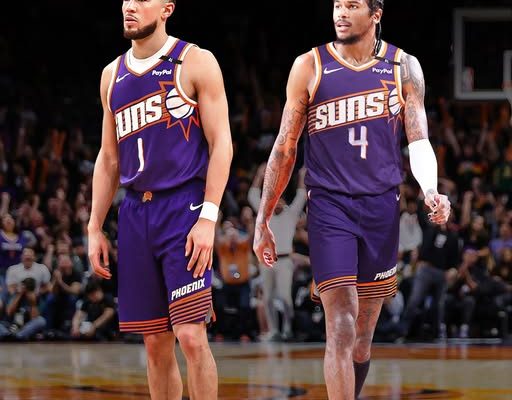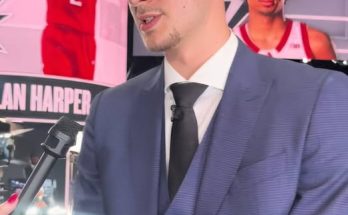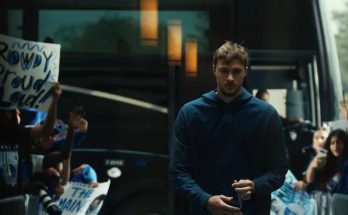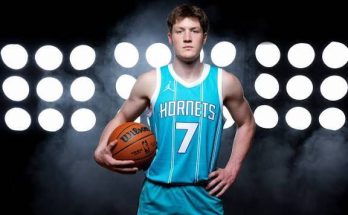The NBA offseason has always been fertile ground for wild hypotheticals, creative roster construction, and fire-starting debate. But few recent takes have stirred the pot quite like the one swirling through social media circles and basketball barbershops alike: Could a potential Devin Booker and Jalen Green pairing form not only a lethal backcourt, but one even better than the Devin Booker–Kevin Durant duo ever managed to become? The very suggestion borders on heresy for some Suns fans and KD loyalists, but when you strip it down and look beyond the legacy names, there may be more smoke—and fire—to this argument than originally meets the eye.
First, let’s establish some context. The Booker–Durant tandem, though tantalizing on paper, never truly got the time or runway to evolve into its full potential. Injuries, roster instability, a lack of depth, and coaching turnover meant their shared tenure in Phoenix was more “what if” than “wow.” Yes, they dropped some nuclear scoring lines together and wreaked havoc during brief stretches—Booker with his effortless three-level scoring and Durant still one of the most versatile offensive forces in the league—but they lacked chemistry in critical moments and, most importantly, playoff success. Their last run together flamed out in the Western Conference playoffs without ever even sniffing the Finals. The pairing felt like it was playing catch-up from day one, with urgency overshadowing organic growth.
Contrast that with the hypothetical idea of Devin Booker teaming up with Jalen Green—a young, electric, fearless guard who has gradually begun to put the pieces together in Houston. While Green hasn’t been part of many winning situations just yet, the flashes he’s shown are more than enough to excite executives and fans alike. He possesses a rare athleticism, an improving shot profile, and a natural scorer’s mentality that echoes Booker’s early years. But what makes the hypothetical combination intriguing isn’t just talent stacking—it’s style.
Booker and Green would create a backcourt rooted in aggression, tempo, and relentless attacking. While Book has refined his game into a polished, methodical masterclass of footwork and mid-range efficiency, Green offers a high-flying, breakneck contrast that complements rather than competes. Where Durant and Booker sometimes overlapped in their usage and ideal zones on the floor—leading to uncomfortable spacing or stagnant offensive possessions—the Booker-Green partnership could thrive on movement and pressure. Booker operates with surgical precision in the half court; Green thrives in transition. Booker can break down defenses in isolation; Green can slash and cut off-ball. Their contrasting strengths have the potential to fuel a more balanced and unpredictable offense, one that forces defenses to make pick-your-poison decisions every possession.
And then there’s the age and trajectory factor. Kevin Durant, as transcendent as he still is, is undeniably on the back nine of his career. Injuries are more frequent, and his mobility—especially laterally on defense—isn’t what it once was. Booker, in contrast, is in the prime of his career. Jalen Green is still climbing toward his ceiling. Pairing two guards on similar career arcs allows for long-term cohesion and growth. There’s room for failure, adjustment, and ultimately excellence. That timeline symmetry matters. It creates space for leadership roles to form naturally, for egos to adjust accordingly, and for schemes to be implemented with patience and permanence—something Booker never had in his KD partnership.
Defensively, there are questions, of course. Neither Booker nor Green has the reputation of being lockdown defenders, and the KD partnership at least offered Durant’s length as a secondary rim deterrent. But modern NBA defense is more about team principles and connectivity than it is about having two individual stoppers. The bigger question is whether a potential Booker-Green backcourt could buy into a defensive culture together. With the right coach and the right supporting frontcourt, it’s not a deal-breaker. If anything, both players would benefit from a fresh start where defensive accountability becomes a shared mission rather than an individual criticism.
There’s also the intangible element: joy. The Durant–Booker pairing, as talented as it was, never looked fun. It looked serious. Burdened. Forced. Even as they put up big numbers, the body language was often stiff, the energy tense. That’s not necessarily a bad thing in high-stakes basketball, but chemistry often wins championships, not just talent. With Jalen Green, there’s a youthful exuberance to the way he plays—a looseness that could reinvigorate Booker, who has often carried the weight of a franchise on his shoulders since he was 18 years old. Imagine Booker, finally with a co-star whose presence lifts rather than drags, playing freely and without tension. That joy could be the secret ingredient that turns potential into greatness.
Critics of the hot take will argue that even at his current age, Kevin Durant is a first-ballot Hall of Famer, a 2x Finals MVP, a walking 30-piece on any night, and a top-15 player of all time. That kind of pedigree doesn’t just get brushed aside in favor of promise and vibes. And they’d be right. KD’s legacy is secure, and what he brought to the Suns was invaluable in terms of experience and gravity. But basketball isn’t just about what players were—it’s about what pairings can become. And if we’re talking about a future-focused lens, a Booker-Green duo could very well be a more sustainable, more dynamic pairing built for the next era of NBA basketball.



